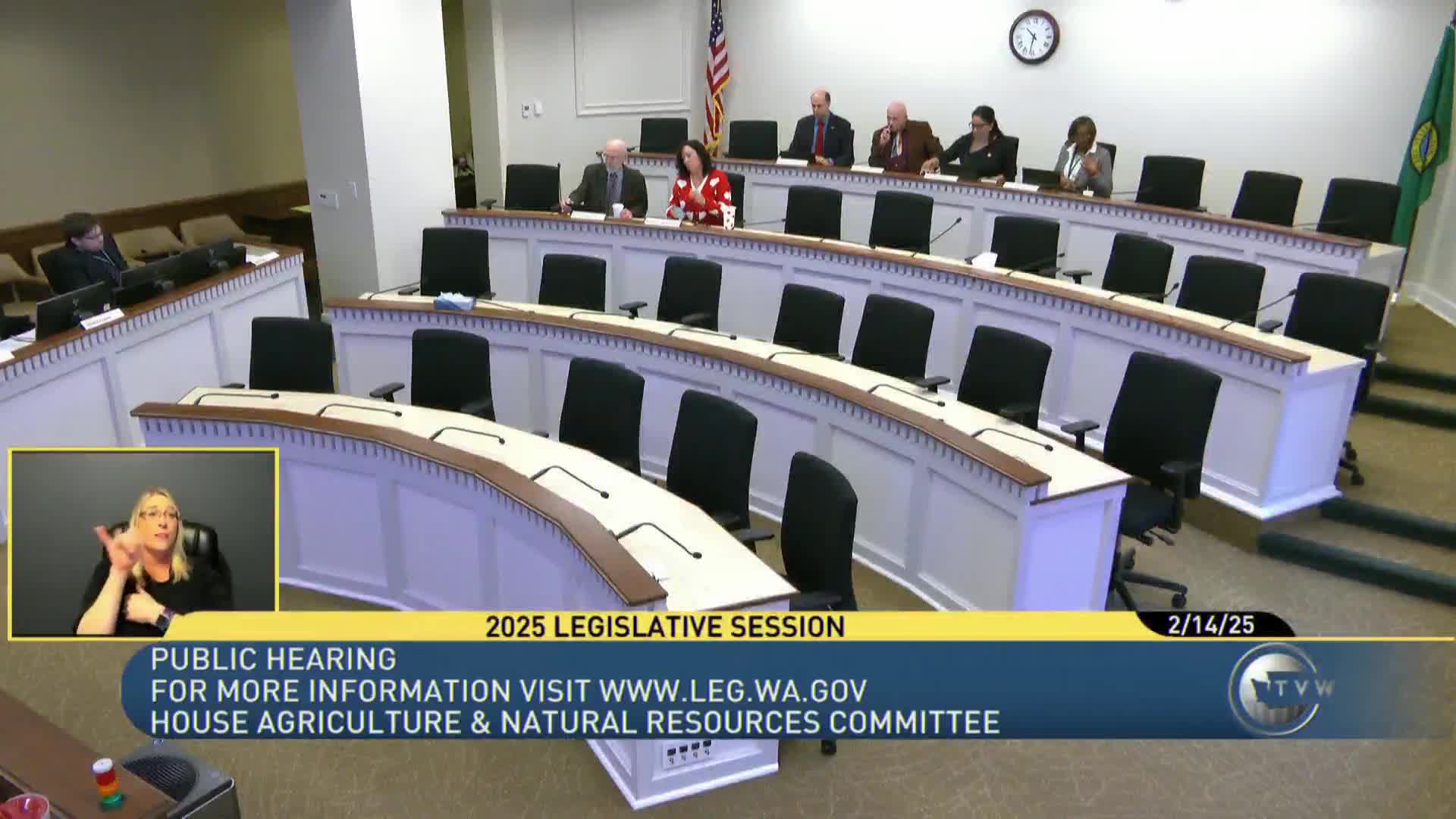Article not found
This article is no longer available. But don't worry—we've gathered other articles that discuss the same topic.
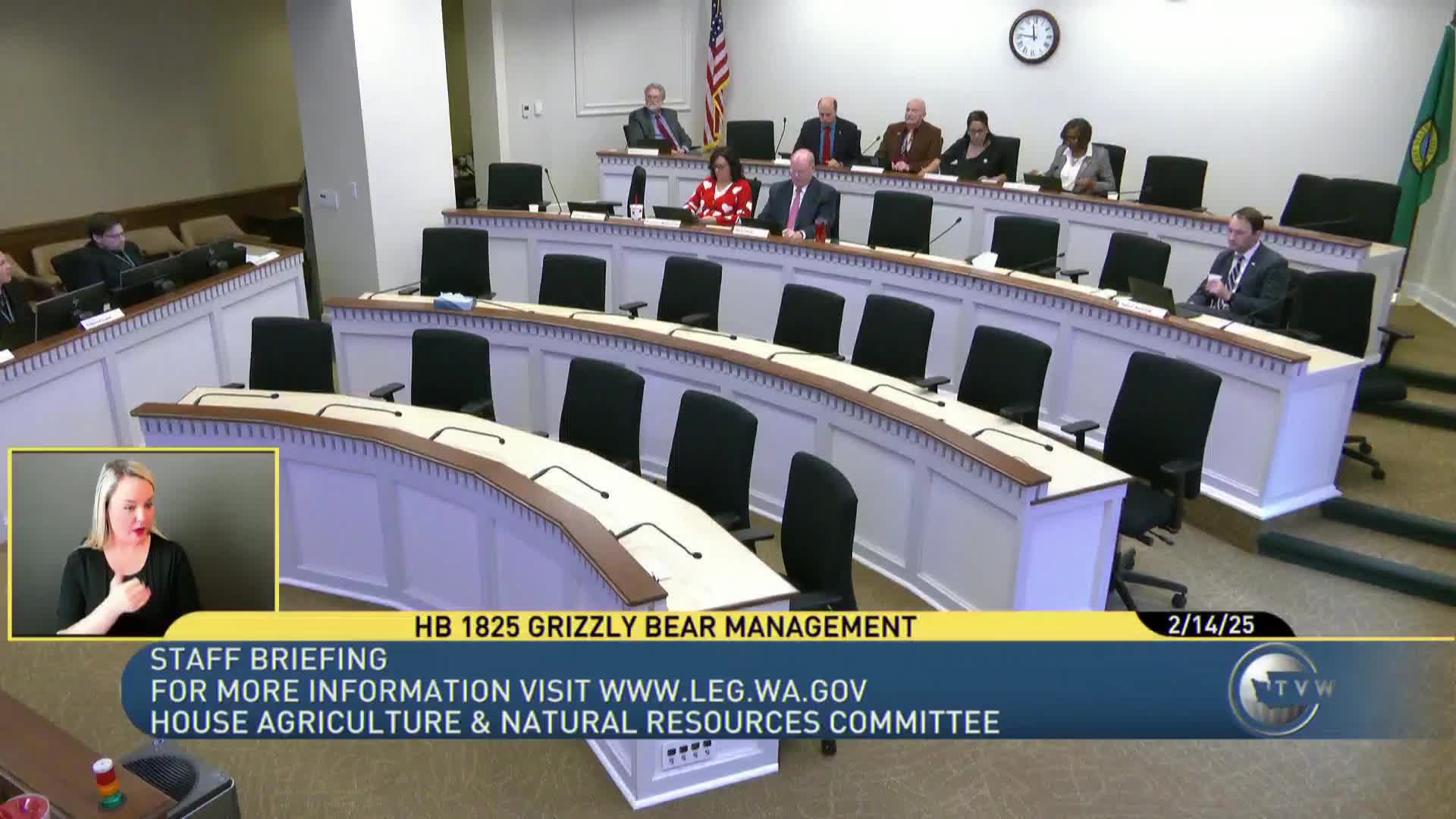
Committee hears bill to repeal statutory limits on grizzly-bear management; testimony split between conservationists and agricultural stakeholders
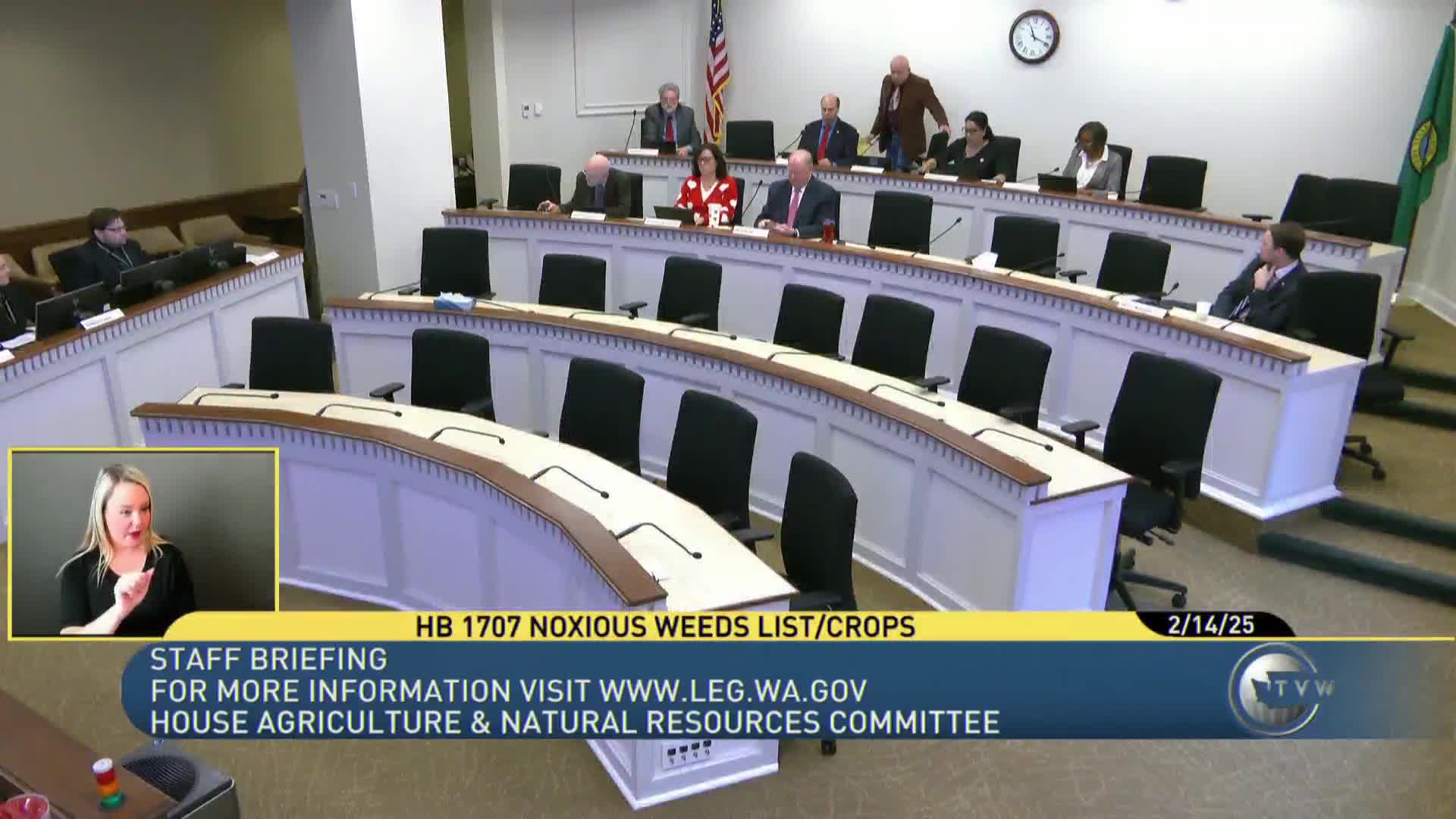
Heated testimony as committee hears bill to require work group review before listing agricultural crops as noxious weeds
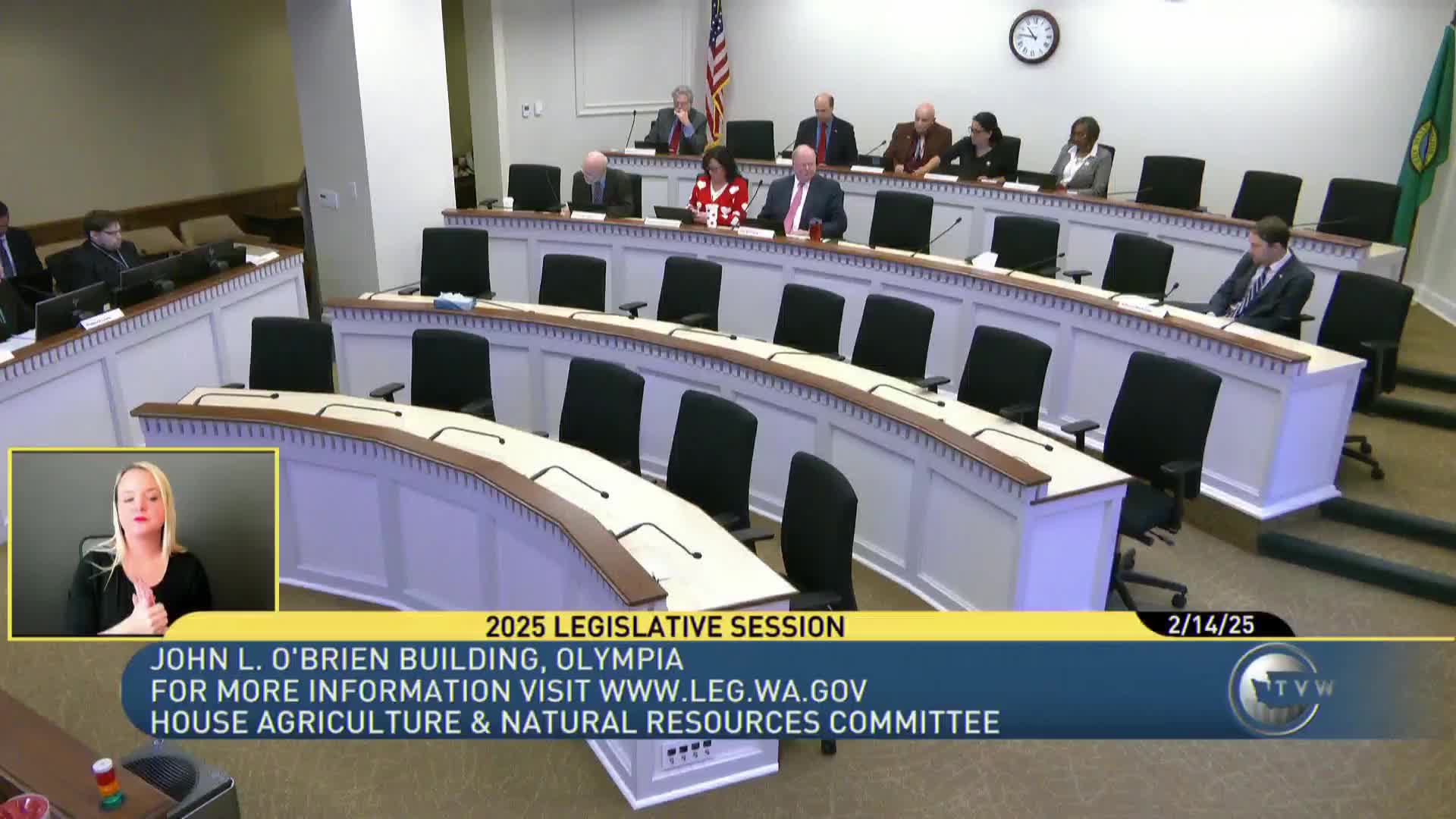
Committee rebriefs foie gras bill; substitute would require free‑feeding certification administered by Department of Agriculture
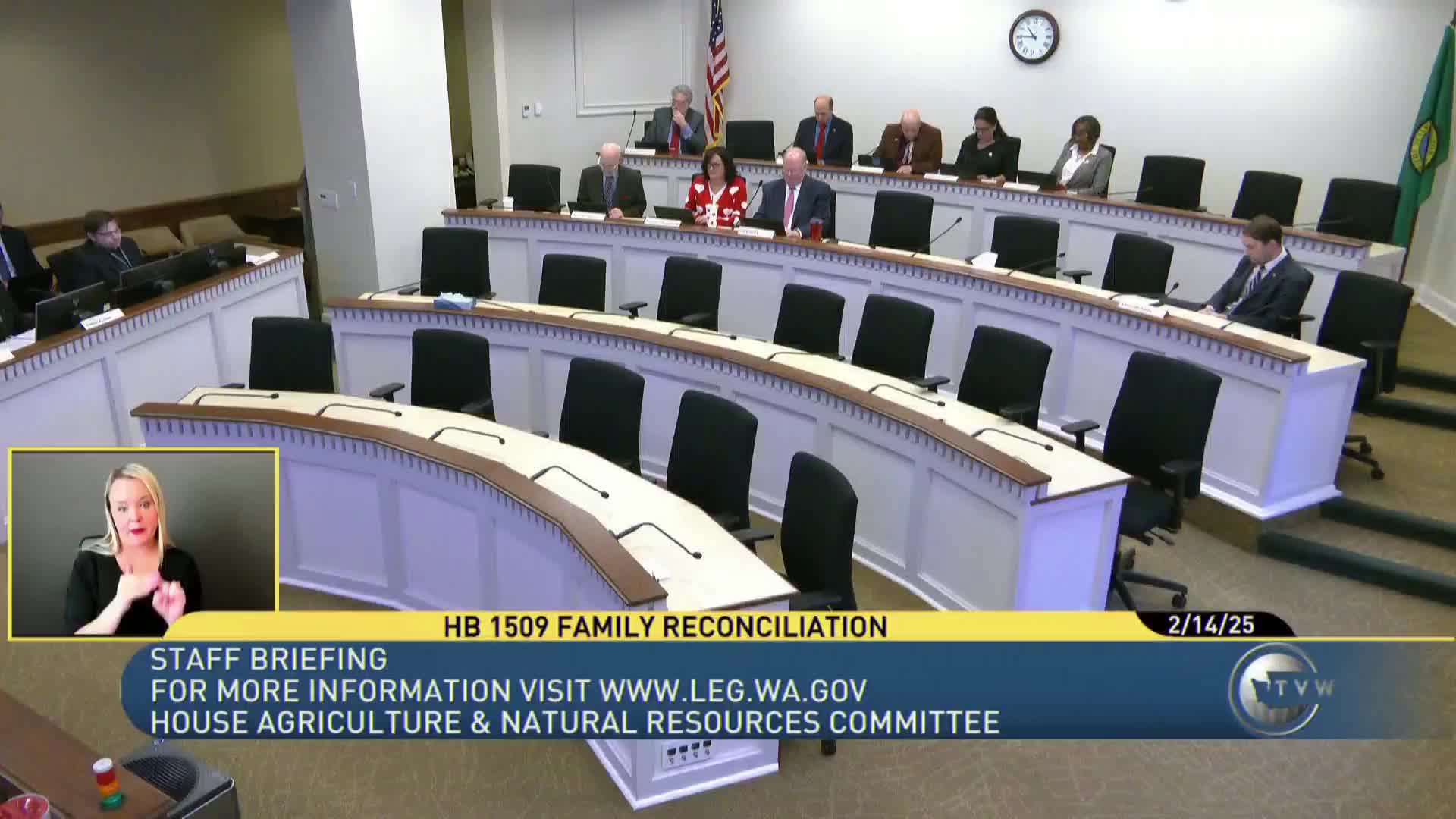
Committee advances bill to convene wildfire mitigation and resiliency standards work group with amendment expanding representation
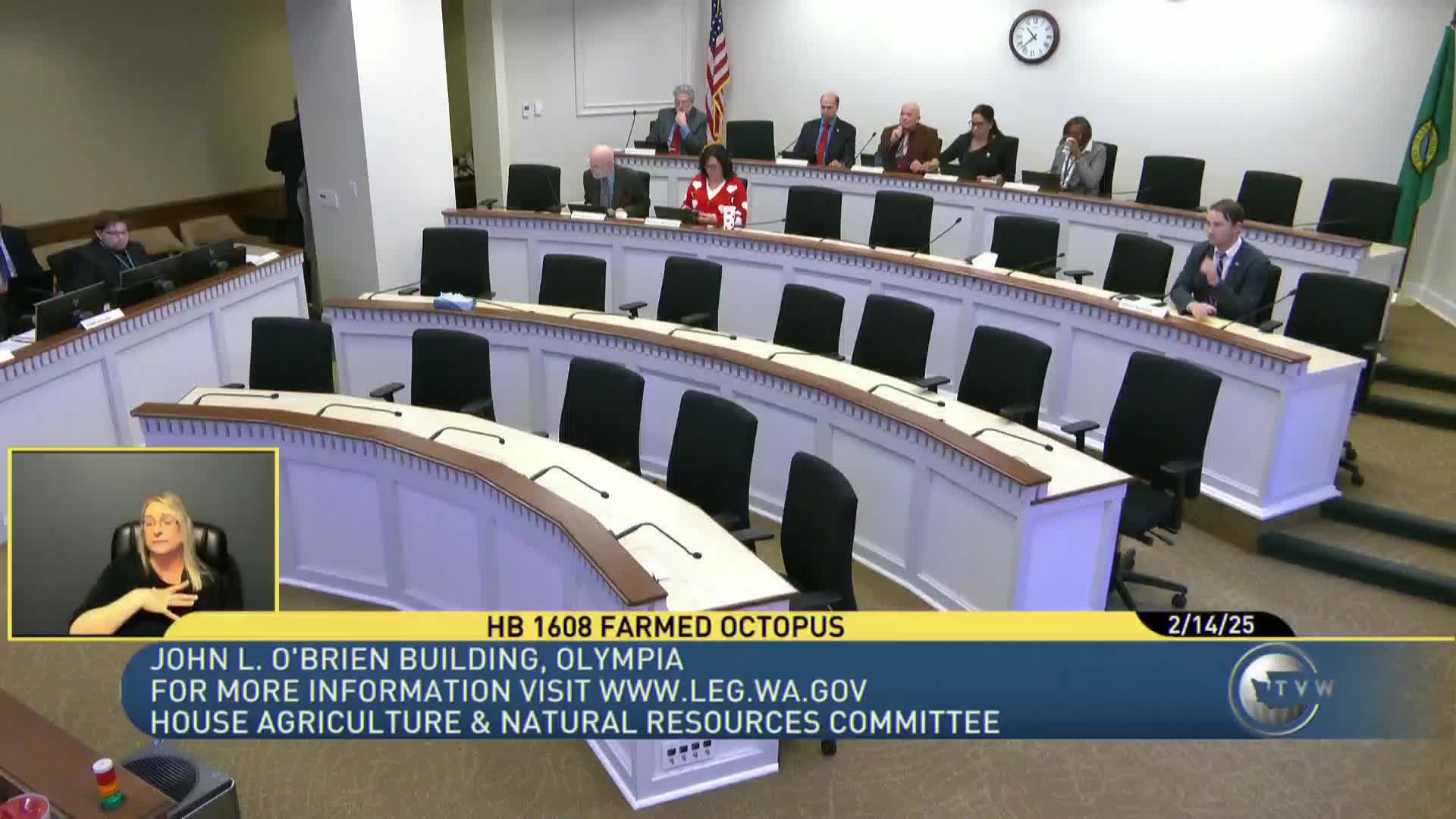
Committee hears bill to ban sale and possession of farmed octopus
